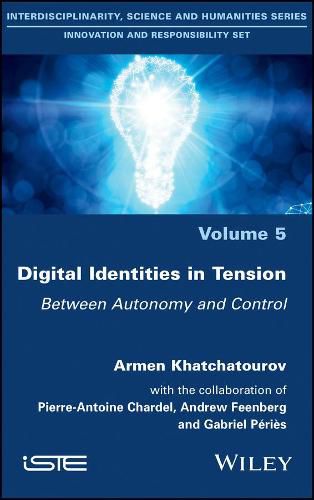Readings Newsletter
Become a Readings Member to make your shopping experience even easier.
Sign in or sign up for free!
You’re not far away from qualifying for FREE standard shipping within Australia
You’ve qualified for FREE standard shipping within Australia
The cart is loading…






Digital Identities in Tension deals with the ambivalence of universal digitalization. While this transformation opens up new possibilities, it also redistributes the interplay of constraints and incentives, and tends insidiously to create a greater malleability of individuals.
Today, companies and states are increasingly engaged in the surveillance and management of our digital identities. In response, we must study the effects that the new industrial, economic and political logics have on ethical issues and our ability to act.
This book examines the effects of digitalization on new modes of existence and subjectivation in many spheres: digital identity management systems, Big Data and machine learning, the Internet of Things, smart cities, etc. The study of these transformations is one of the major conditions for more responsible modes of data governance to emerge.
$9.00 standard shipping within Australia
FREE standard shipping within Australia for orders over $100.00
Express & International shipping calculated at checkout
Digital Identities in Tension deals with the ambivalence of universal digitalization. While this transformation opens up new possibilities, it also redistributes the interplay of constraints and incentives, and tends insidiously to create a greater malleability of individuals.
Today, companies and states are increasingly engaged in the surveillance and management of our digital identities. In response, we must study the effects that the new industrial, economic and political logics have on ethical issues and our ability to act.
This book examines the effects of digitalization on new modes of existence and subjectivation in many spheres: digital identity management systems, Big Data and machine learning, the Internet of Things, smart cities, etc. The study of these transformations is one of the major conditions for more responsible modes of data governance to emerge.